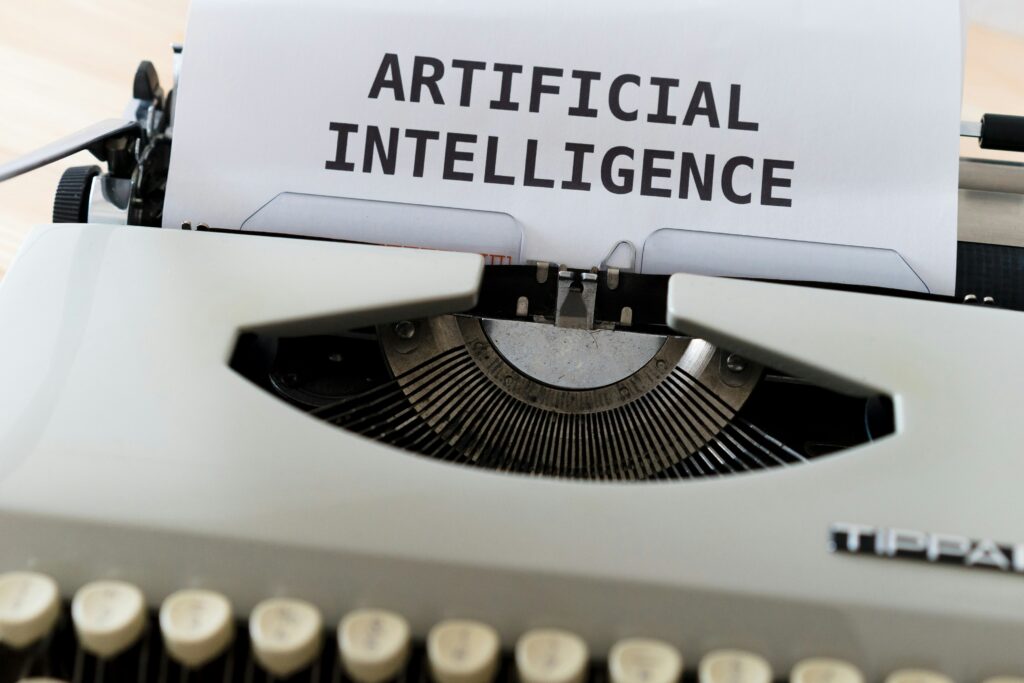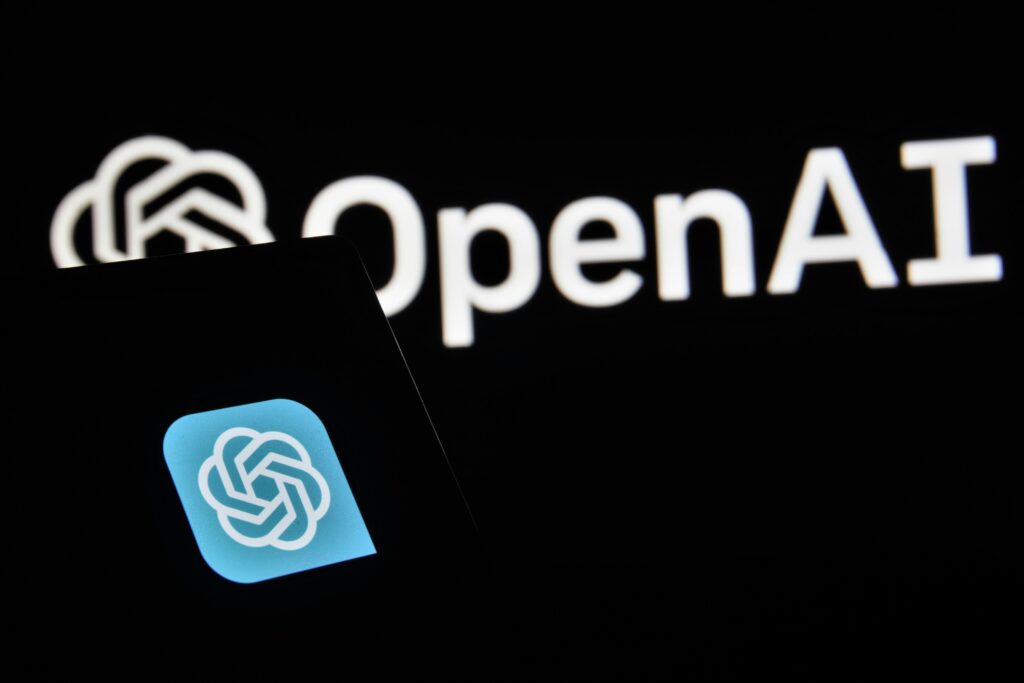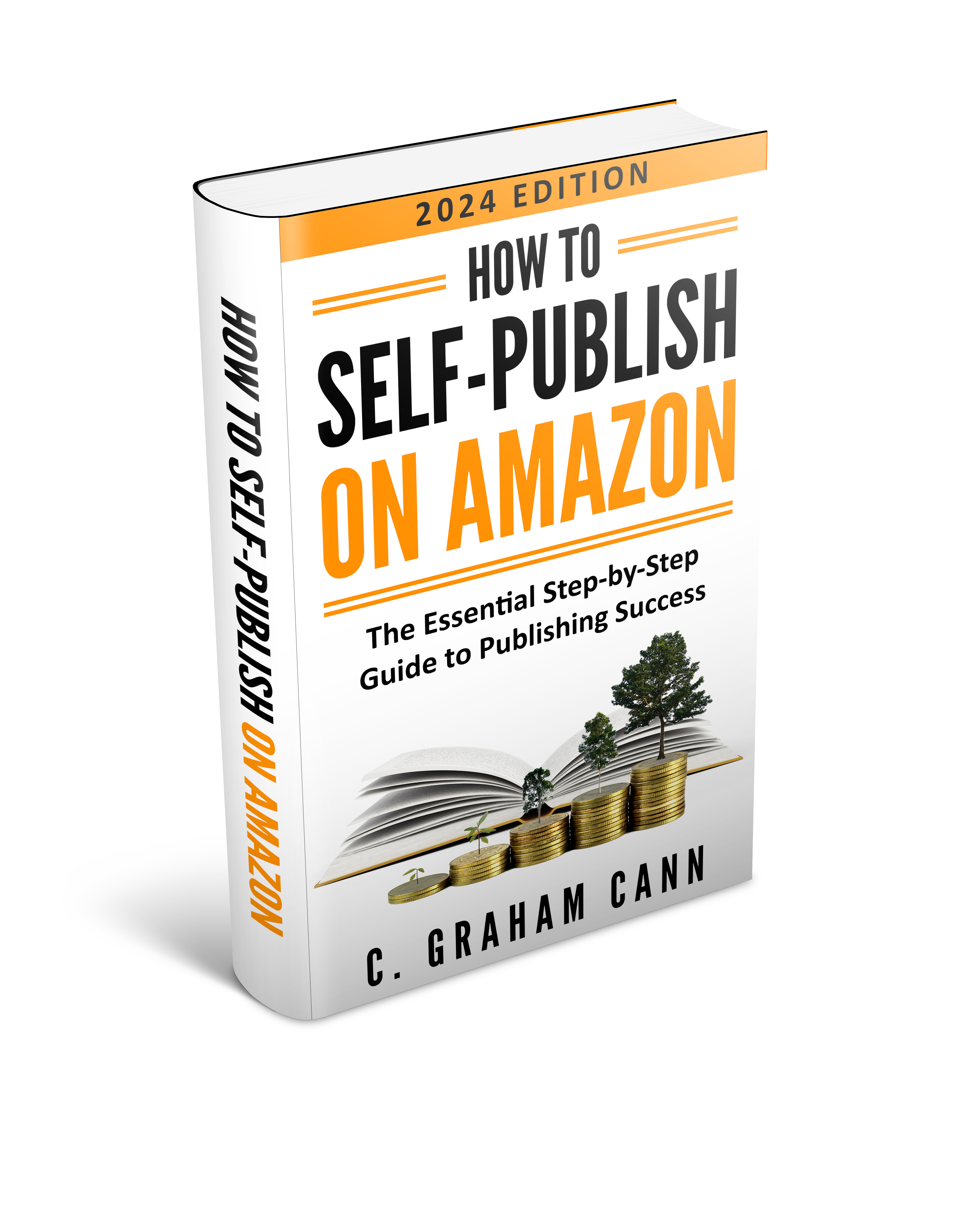THE IMPACT OF AI ON SELF-PUBLISHING: NAVIGATING AI WRITING AND ART

Whether you like it or hate it, the impact of AI on self-publishing authors is not only here to stay, but the industry is set to make giant strides forward in the coming months.
In the rapidly evolving landscape of self-publishing, authors are increasingly turning to artificial intelligence (AI) tools to enhance their creative process and streamline various aspects of their work.
From AI-assisted writing tools to AI-generated content and AI art, this blog will explore the effectiveness of AI for self-publishing authors, examining the advantages, challenges, and ethical considerations associated with incorporating AI into the writing journey.
To be clear, AI-assisted content includes software you use to brainstorm, generate ideas, edit, error-check or improve your content. AI-generated content is where you, as the author, use AI programmes to generate the actual text, images or translations.
1. AI ASSISTED WRITING
Pros:
Enhanced Productivity: AI-assisted writing tools, like Grammarly or ProWritingAid, can significantly improve writing quality by suggesting corrections, enhancing grammar, and providing style recommendations, leading to more polished manuscripts.
Content Optimization: AI algorithms can analyze market trends, helping authors tailor their content to meet reader preferences and improve the chances of commercial success.
Time Efficiency: With AI-assisted tools handling grammar and syntax, authors can focus more on creativity and storytelling, potentially speeding up the writing process.
Cons:
Over-Reliance on AI: Depending too heavily on AI tools may lead to a loss of the author’s unique voice and style, potentially resulting in formulaic or generic writing.
Subscription Costs: Some advanced AI writing tools come with subscription fees, which might be an additional expense for self-publishing authors on a tight budget.
Limited Creativity: While AI can assist with grammar and structure, it may struggle to contribute original ideas, leaving the creative aspects of writing primarily in the hands of the author.

2. AI GENERATED CONTENT
Pros:
Idea Generation: AI algorithms can generate creative prompts, helping authors overcome writer’s block and discover unique plot twists or character ideas.
Content Expansion: AI-generated content can be used to supplement existing material, providing authors with additional ideas or perspectives to enrich their work.
Diversity in Writing Styles: AI tools can mimic various writing styles, allowing authors to experiment with different tones and genres.
Cons:
Lack of Originality: AI-generated content may lack the depth and originality that comes from human creativity, potentially resulting in generic or uninspiring writing.
Ethical Concerns: Depending on the source of training data, there may be concerns about unintentional biases in AI-generated content, impacting the portrayal of characters and themes.
Loss of Authorial Control: Relying too much on AI-generated content might lead to a loss of control over the narrative, affecting the author’s intended message and direction.
3. AI ART
Pros:
Visual Storytelling: AI-generated art can complement written content, providing visually engaging elements for book covers, promotional materials, and social media posts.
Customisation: Authors can use AI to create personalised graphics or visual representations of characters and settings, adding a unique visual dimension to their work.
Time and Cost Efficiency: AI art tools can save time and resources compared to hiring professional artists for every visual element needed.
Cons:
Limited Authenticity: AI-generated art may lack the personal touch and emotional depth that human-created art can offer, potentially impacting the connection readers feel with the visual elements.
Learning Curve: Authors may need time to familiarise themselves with AI art tools, and achieving desired results may require a learning curve.
Copyright and Plagiarism Concerns: Authors using AI-generated art should be cautious about potential copyright issues and ensure that their visuals are unique and legally sound.

How to Self-Publish on Amazon: The Essential Step-by-Step Guide to Publishing Success
Practical help, tips and secrets to ensure success in your author business. Updated and revised 2nd edition (2024)
While AI offers numerous benefits for self-publishing authors, it’s essential to strike a balance between leveraging AI tools and preserving the unique human touch in writing. Authors should approach AI with a discerning eye, recognising its potential while being mindful of the potential pitfalls.
Ultimately, the integration of AI into the self-publishing journey is a powerful tool, but its success depends on how authors navigate the delicate interplay between technology and creativity.
Facebook
Twitter
LinkedIn
Graham Cann is a #1 international best-selling author and CEO of Chas Cann Publishers
Affiliate Disclosure
I earn a small commission on some product links on my blog pages at no extra cost to you. I only recommend products I use now, have used in the past or would use if there was a personal need. The extra pennies help with the coffee fund.



